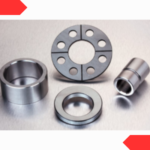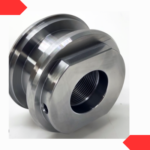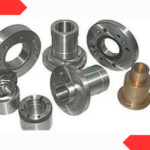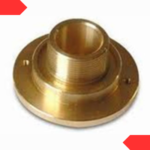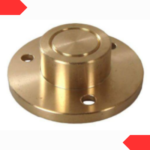Metal Machine Parts
Metal machine parts are components or elements used in machinery that are made from various types of metals such as Mild Steel, Stainless Steel, Die Steel, EN -31, P-20, H-13, Copper, Aluminium, Brass and all other metals.. These parts are designed to fulfil specific functions within a machine, ranging from providing structural support to facilitating movement, transmitting power, or conducting heat. Metal machine parts are commonly used in industries such as automotive, aerospace, construction, manufacturing, and many others.
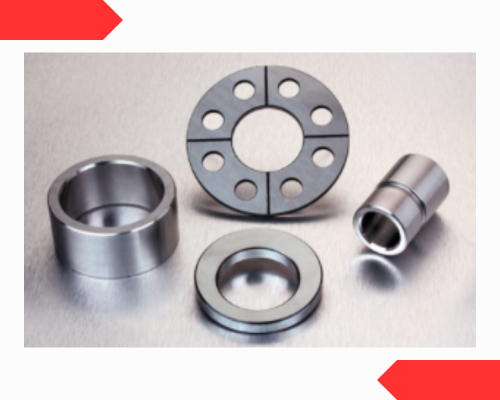
Here are some examples of metal machine parts:
- Shafts: Metal shafts are cylindrical components used to transmit rotary motion or power between different machine components.
- Bearings: Metal bearings are used to reduce friction and facilitate smooth movement between machine parts. They are often made from materials like steel or bronze.
- Gears: Metal gears are toothed components that mesh together to transmit torque and motion between rotating shafts.
- Pistons: Metal pistons are used in internal combustion engines to transfer force generated by the expanding gases to the crankshaft.
- Fasteners: Metal fasteners such as bolts, screws, nuts, and rivets are used to hold machine parts together securely.
- Frames and chassis: Metal frames or chassis provide structural support and form the skeleton of machines like vehicles or large equipment.
- Housings: Metal housings enclose and protect internal components of machines, providing durability and shielding against external elements.
- Heat sinks: Metal heat sinks are used to dissipate heat generated by electronic components or machinery, preventing overheating.
- Springs: Metal springs are used to store and release mechanical energy, providing functions such as tension, compression, or torsion.
- Cutting tools: Metal cutting tools, such as drills, milling cutters, and lathe tools, are used to shape or remove material during machining operations.
Metal machine parts offer advantages such as high strength, durability, heat resistance, and good electrical conductivity. The selection of the appropriate metal for a particular machine part depends on factors like the required strength, operating conditions, cost, and compatibility with other materials and processes. Metals commonly used in machine parts include steel, aluminium, brass, bronze, and various alloys

